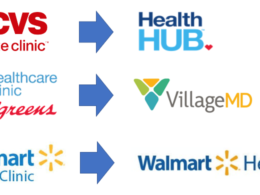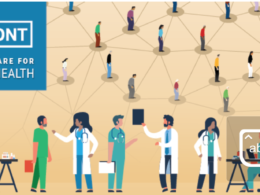the health transformation
institute for continuous health transformation
Joaquim Cardoso MSc
Chief Researcher, Editor and
Senior Advisor
January 14, 2023
EXECUTIVE SUMMARY
The crisis the NHS faces has been 13 years in the making and will take time to fix.
At the heart of the problem is a chronic workforce shortage.
- Labour has committed to one of the biggest expansions of medical training in history, funded by abolishing non-dom tax status:
- (1) 7,500 new medical school places plus
- (2) 10,000 more clinical placements for nursing and midwifery every year, doubling the number of district nurses and
- (3) training 5,000 more health visitors.
Alongside this, however, delivering better outcomes for patients will depend on modernisation.
Reform will need to do more of the heavy lifting this time around, and we should start with the NHS’s front door — primary care.
- We will provide face-to-face appointments for all who want them — and bring back the family doctor by providing incentives to offer patients continuity of care.
- We know we need more GPs but this will take time.
But with demand far outstripping supply, we have to think radically now.
- We need to create more NHS “front doors” so patients get the care they need in a timely way.
- We can draw inspiration from Denmark, where GPs collaborate closely with other local services, such as acute care teams who help prevent hospital admissions. They can also make referrals for other support.
- In Germany, GPs are trained to use ultrasound scanners to aid faster diagnosis — another example to consider.
- Pharmacies with NHS contracts need to be able to do more, taking the pressure off burnt-out GPs. I applaud practices for their pivotal role in the NHS Covid-19 vaccination programme, but I want to see if pharmacists could take a greater load to allow GPs to focus on things only they can do.
- We need to consider how we should expand self-referral in specific areas of medical need, cutting out unnecessary red tape where clinically appropriate. It can’t be right that at the moment many opticians aren’t able to refer directly to hospital eye specialists and always need to go via a GP.
We will also review the future of the GP partnership model.
DEEP DIVE

Financial Times
Wes Streeting
January 13, 2023
Wesley Paul William Streeting is a British Labour Party politician who has been the Shadow Secretary of State for Health and Social Care since 2021, and Member of Parliament (MP) for Ilford North since 2015.
“What is our long-term plan? We can’t leave the Labour party to have a long-term plan and we don’t.”
These damning words came from Sir Edward Leigh, Conservative MP for Gainsborough, in response to a statement that Steve Barclay, the health secretary, gave in parliament this week.
He’s right to ask — the crisis the NHS faces has been 13 years in the making and will take time to fix.
We need to do everything we can in the short term to give the buckling system a fighting chance to get through this winter.
But the health service must also have a serious plan for the future to ensure we never end up in this situation again.
But the health service must also have a serious plan for the future to ensure we never end up in this situation again.

At the heart of the problem is a chronic workforce shortage.
Labour has committed to one of the biggest expansions of medical training in history, funded by abolishing non-dom tax status:
- (1) 7,500 new medical school places plus
- (2) 10,000 more clinical placements for nursing and midwifery every year, doubling the number of district nurses and
- (3) training 5,000 more health visitors.
We will set out a long-term workforce strategy to address the high number of medical professionals leaving the NHS and encourage those who’ve already gone to come back and help us fix the problems that forced them out.

Alongside this, however, delivering better outcomes for patients will depend on modernisation.
The lesson of the last Labour government is that investment combined with reform delivers results — such as providing patients with more choice over where they are treated.
As my front bench colleagues have warned, the state of the public finances means that Labour will not be able to open the government cheque book.

Reform will need to do more of the heavy lifting this time around, and we should start with the NHS’s front door — primary care.
Reform will need to do more of the heavy lifting this time around, and we should start with the NHS’s front door — primary care.
Millions are struggling to access general practice when they need to, in the way they want.
Polling published this week suggests a quarter of adults have turned to overstretched A&E departments because they couldn’t see a GP.
We will provide face-to-face appointments for all who want them — and bring back the family doctor by providing incentives to offer patients continuity of care.
We know we need more GPs but this will take time.

But with demand far outstripping supply, we have to think radically now.
October 2022 saw GPs deliver a record number of appointments, but it also saw nearly 2mn patients waiting over a month.
We need to create more NHS “front doors” so patients get the care they need in a timely way.
We need to create more NHS “front doors” so patients get the care they need in a timely way.
We can draw inspiration from Denmark, where GPs collaborate closely with other local services, such as acute care teams who help prevent hospital admissions.
They can also make referrals for other support.
In Germany, GPs are trained to use ultrasound scanners to aid faster diagnosis — another example to consider.
Pharmacies with NHS contracts need to be able to do more, taking the pressure off burnt-out GPs.
I applaud practices for their pivotal role in the NHS Covid-19 vaccination programme, but I want to see if pharmacists could take a greater load to allow GPs to focus on things only they can do.
We need to consider how we should expand self-referral in specific areas of medical need, cutting out unnecessary red tape where clinically appropriate.
It can’t be right that at the moment many opticians aren’t able to refer directly to hospital eye specialists and always need to go via a GP. This wastes everyone’s time and delays patient access to the care that they need.
We will also review the future of the GP partnership model.
Should we phase this out and move towards a system where GPs become salaried employees of the health service rather than self-employed professionals contracted by the NHS, as now?
Should we phase this out and move towards a system where GPs become salaried employees of the health service rather than self-employed professionals contracted by the NHS, as now?
We can’t ignore reality. GPs themselves are choosing to go in this direction — if current trends continue, salaried GPs will be the majority by 2026.
We’re already seeing widespread examples of partners handing back their contracts, so we need to prepare for this or patients will be left without vital services.
Labour is doing the responsible thing, planning for how we secure patient access to general practice in the long term, as well as the short term.
Yet I’ve also heard impassioned arguments in defence of GP partnerships, which is why I want to have this conversation in public.
Over the coming year, Labour will consult on our 10-year plan for change and modernisation of the NHS, starting with primary care and public health.
Over the coming year, Labour will consult on our 10-year plan for change and modernisation of the NHS, starting with primary care and public health.

After five prime ministers and seven health secretaries on their watch, there is no reason to believe that the Conservatives will answer Sir Edward Leigh’s call.
The longer they are in power, the longer patients will have to wait for a proper plan.
Originally published at https://www.ft.com on January 13, 2023.
People mentioned
Sir Edward Leigh, Conservative MP for Gainsborough,












